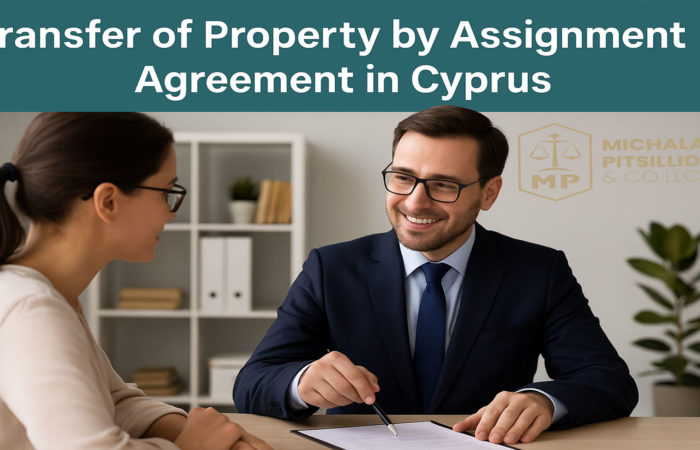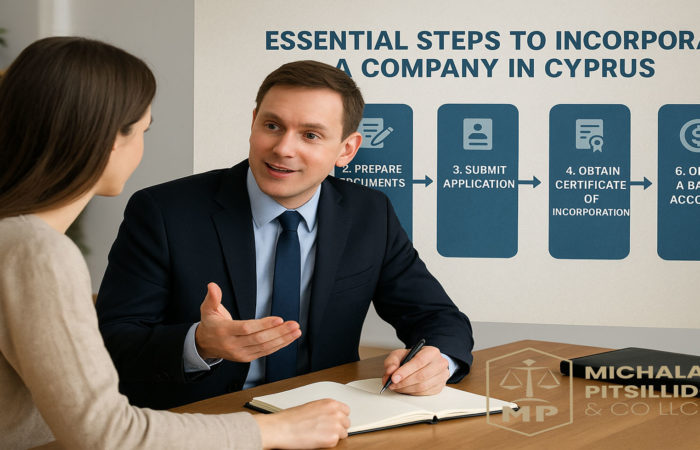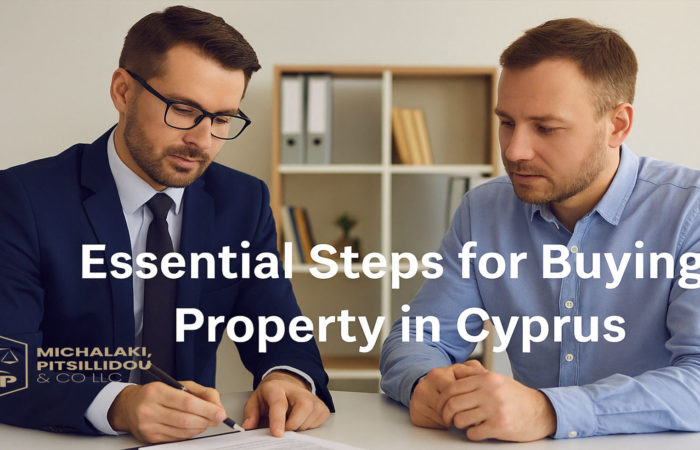Real Estate in Cyprus: A Comprehensive Guide
Cyprus offers a blend of sunny climate, EU membership, and a thriving business scene, making it a desirable location for real estate investment. Below is a detailed overview highlighting trends, costs, and the buying process for those interested in the Cypriot real estate market.
Trends in Cyprus Real Estate
- Foreign Investment: Over a fifth of real estate transactions in 2023 involved foreigners, according to the Department of Lands and Surveys (DLS)
- Homeownership Rate: Nearly 70% of Cypriots live in their own homes.
- Golden Visa Influence: The Cyprus Permanent Residency by Investment program significantly impacts demand and supply, attracting international buyers.
- Construction Growth: There was a 7.4% year-on-year increase in construction output in the second quarter of 2023.
- Price Trends: Residential property prices are on the rise, with continued development projects all over Cyprus.
- Employment Boost: The number of employees in construction and real estate activities has hit record highs, indicating a booming sector.
- Rental Yield: Averages between 4-6% and in some more specific cases it can reach over 10% per year depending on the property type, age, condition etc.
Costs Associated with Buying Property in Cyprus
- Price Index: As of Q3 2023, property prices rose by 2.2% quarterly and 7.6% annually. Apartment prices in Cyprus vary, starting at €100,000 and can go up to several million euros. Similarly, house prices begin at €140,000, reaching up to several million euros depending on location, condition, year build, amenities and extras, land building density etc.
- Median Prices: Apartments have a median price pre square meter of €4,290 and houses/villas of €3,350 per square meter.
- Location Impact: Prices vary significantly by location, with Limassol being the most expensive and the other Cities to follow.
- Luxury Market: Cyprus has a vibrant luxury property market across various types.
Cyprus Permanent Residence
The Cyprus Permanent Residence Program for investors is designed to offer an opportunity to reside in a coveted part of the European Union, known for its stable governance and business-friendly atmosphere. This permanent residency extends to include a spouse and dependent children, aiming to draw business professionals and enrich the island’s diverse community.
Requirements for obtaining permanent residence in Cyprus through investment include:
- Making an investment of €300,000 plus VAT in real estate, which can be either for residential or commercial purposes.
- Demonstrating a stable annual income from foreign sources of at least €50,000, with an additional €15,000 required for a spouse and €10,000 for each child. The program also accommodates financially independent adult children, although this increases the investment requirement proportionally per child.
- Maintaining a clean criminal record in the applicant’s home country.
Upon securing permanent residence, the individual must annually affirm the upkeep of the property. Additionally, every three years, both the applicant and their adult family members are required to prove they have no criminal record and possess valid health insurance.
Buying Process of Property in Cyprus
- Finding a Property: Selection is the first step and usually is accompanied with a reservation fee paid after the selection of the property by the buyer to the seller. Prior to signing the Sales Purchase Agreement a due diligence on the property to be purchased is required checking and obtaining the following:
- Recent Title Deed of the Property
- Approved Architectural Plans in scale
- Full set of Town Planning Permit
- Full set of Building Permit
- Clean Search showing the existence of any encumbrances, memos, liens and/or any mortgages on the property to be purchased.
- Legal and Banking: Opening a local bank account and obtaining permission from the Council of Ministers are essential in order to facilitate the property purchase.
- Contracts and Registration: Signing a Reservation Agreement, followed by the sales purchase agreement, and then registration of the Sales Purchase Agreement at the Department of Lands and Surveys are key steps in order to securitize the transaction mainly for the purchaser.
Costs for Cyprus Property Buyers
- Transfer tax: The Transfer Tax is depending on the value of the property to be purchased ) , VAT (5 or 19%), and stamp duty are principal costs.
- VAT applies to the purchase price at rates between 5% or 19%. If VAT is paid, transfer tax is not applicable.
- To qualify for the reduced VAT rate of 5%, the property must be your main residence and its value should not surpass €350,000. This lower VAT rate is applicable to properties up to 130 square meters. To avail of this reduced rate, a declaration must be submitted to the Tax Department. Our legal team can assist in preparing and submitting this application on your behalf.
- Stamp duty starts at a rate of 1.5%, which varies with the value of the property. The maximum stamp duty charged cannot exceed €20,000.
- Tax on rental income varies based on your total income earned in Cyprus.
Cyprus Seller’s Considerations
- Taxes: Sellers must consider capital gains tax of 20% on the profit and the cost of licensed real estate agent services.
- Maintenance: Property maintenance and utility costs are crucial for sellers to manage.
Cyprus Permanent Residence for Property Buyers
- Investment Requirement: €300,000 plus VAT in real estate, with additional financial criteria for family members.
- Benefits: Offers stable living in the EU with a cosmopolitan community appeal.
Advantages of Investing in Cyprus
- Investing in Cyprus property is lucrative due to its strong demand, membership in the European Union, and the island’s stunning natural landscapes and geographical allure.
- The cost of living is comparatively low, complemented by a supportive business climate and advantageous tax policies.
- Owning property can lead to obtaining a permanent residence permit. It’s important to note that Cyprus permanent residency does not automatically entitle one to a Schengen visa. Nevertheless, when applying for a Schengen visa, the Cyprus residence permit card should be presented, ensuring its validity extends at least three months beyond the visa’s expiry date.
FAQs and Key Points for Cyprus Buyers
- Visiting Cyprus: At least one visit is recommended for potential buyers to understand the market better.
- Selection Criteria: Includes general and Cyprus-specific factors like location, budget, and due diligence on title deed of the property to be purchased.
- Investment Programme Benefits: Offers political stability, a favourable tax system, and a high-quality living environment.
- Total Investment Costs: Include real estate investment, additional VAT, and annual income requirements from abroad.
- Cyprus Citizenship through the Investment Programme: Purchasing a house or apartment in Cyprus doesn’t immediately grant citizenship. Yet, it plays a role in securing a residence permit. Eligibility for citizenship arises after residing for five years within a span of seven years, which must include a continuous, lawful stay of 12 months prior to application.
Conclusion
Our approach is tailored to each client’s unique needs, focusing on delivering clear, practical guidance. We are committed to upholding the highest standards of professionalism and integrity.
This article is intended for informational purposes only and should not be taken as legal advice. For more detailed information and personal legal guidance, please contact us.











